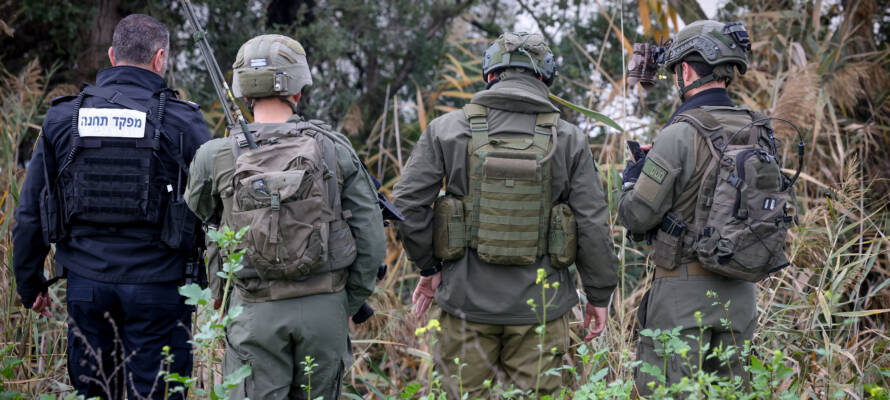Hezbollah claimed responsibility for the blast and said it had placed explosive devices along its border.
By Vered Weiss
An explosion inside Lebanon injured four IDF soldiers, one seriously, overnight on Sunday.
The injuries occurred as the Golani Brigade’s reconnaissance unit and the elite Yahalom combat engineering unit were engaged in “operational activity” inside Lebanon not far from the Israeli border.
The wounded were evacuated to the Galilee Medical Center in Nahariya.
Hezbollah claimed responsibility for the blast and said it had placed explosive devices along its border.
The precise cause of the explosion is being investigated as either a bomb planted by Hezbollah or an explosion from some other source.
Overnight on Sunday, IDF fighter jets struck Hezbollah targets in Seddiqine, Matmoura, Labbouneh, and Ayta ash-Shab.
On Sunday afternoon, Israel’s Air Force hit a Hezbollah weapons production site in the Baalbek region of northern Lebanon in retaliation for missile launches toward northern Israel.
“Air Force fighter jets attacked a significant Hezbollah weapons production site in the Al-Nabi Shayth area, deep in Lebanon,” the Israel Defense Forces announced in a post on X.
Hezbollah fired over 100 rockets into the Upper Galilee, according to Ynet.
Israel intercepted most of them from the air and there were no reported casualties.
The attack occurred as Iran’s IRGC terror group made an unprecedented attack on Israel firing over 300 missiles with most intercepted before they could land on Israeli soil.
Hezbollah, along with the Houthis in Yemen and Hamas in Gaza, is considered one of Iran’s proxies.
The Lebanese terror group began firing missiles into Israel on October 8th, the day after the Hamas invasion of southern Israel.
In the past 6 months, fighting has escalated on the border between Israel and Lebanon with some speculation that a full war between the two countries may result.
The escalation of missiles in the north of Israel is reportedly happening because Iran is encouraging Hezbollah to attack Israel.
An Iranian source told the Arabic Post that Iran urged Hezbollah to step up attacks only after “it had become certain of Israel’s intention” to operate in Rafah, which would be interpreted to mean that Lebanon “will be next.”
In addition, the source also said that Esmail Qaani, Islamic Revolutionary Guards Corp (IRGC) Quds Force leader was meeting with Hezbollah head Hassan Nasrallah to discuss “the latest developments” on the border between Israel and Lebanon.
